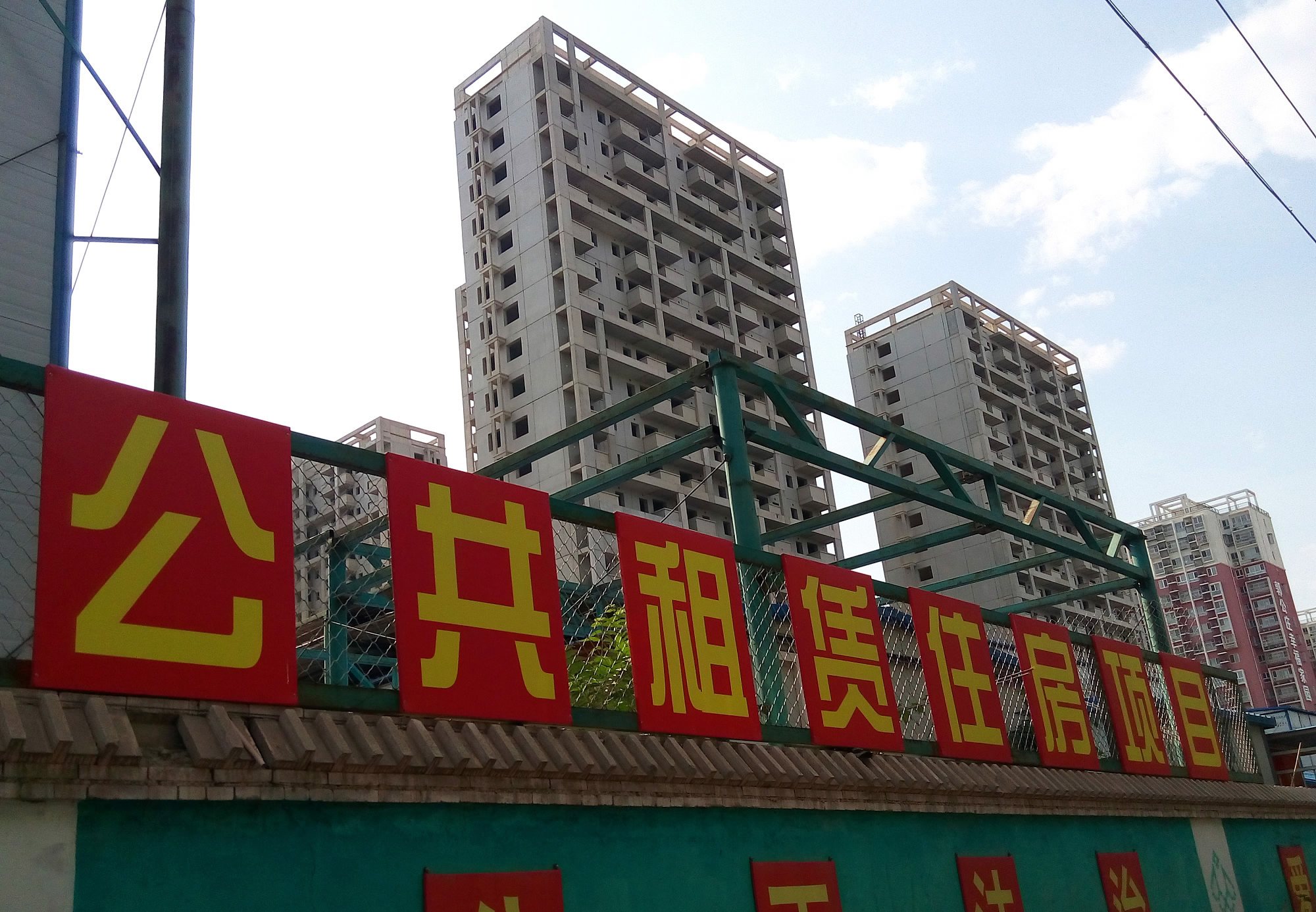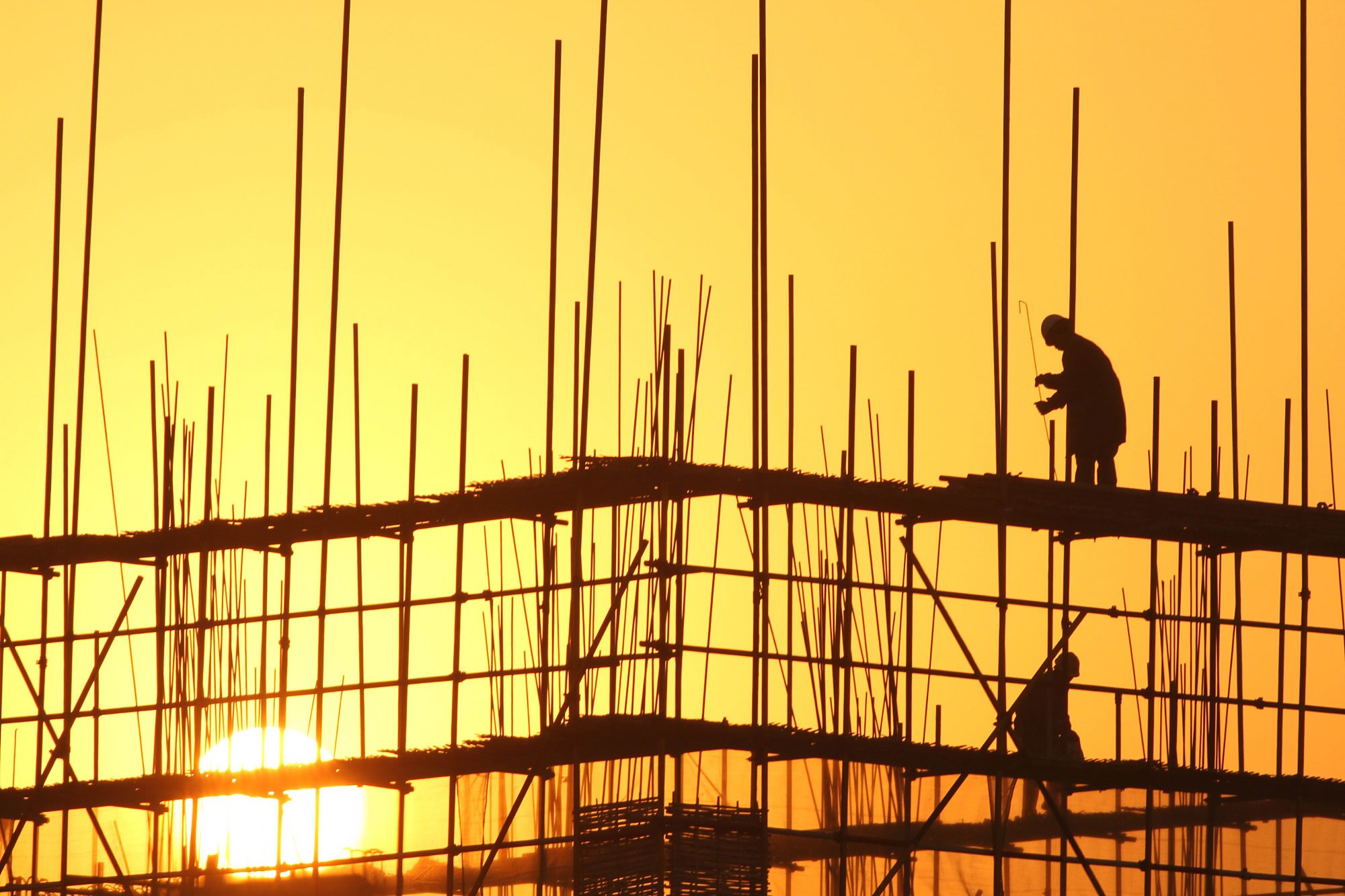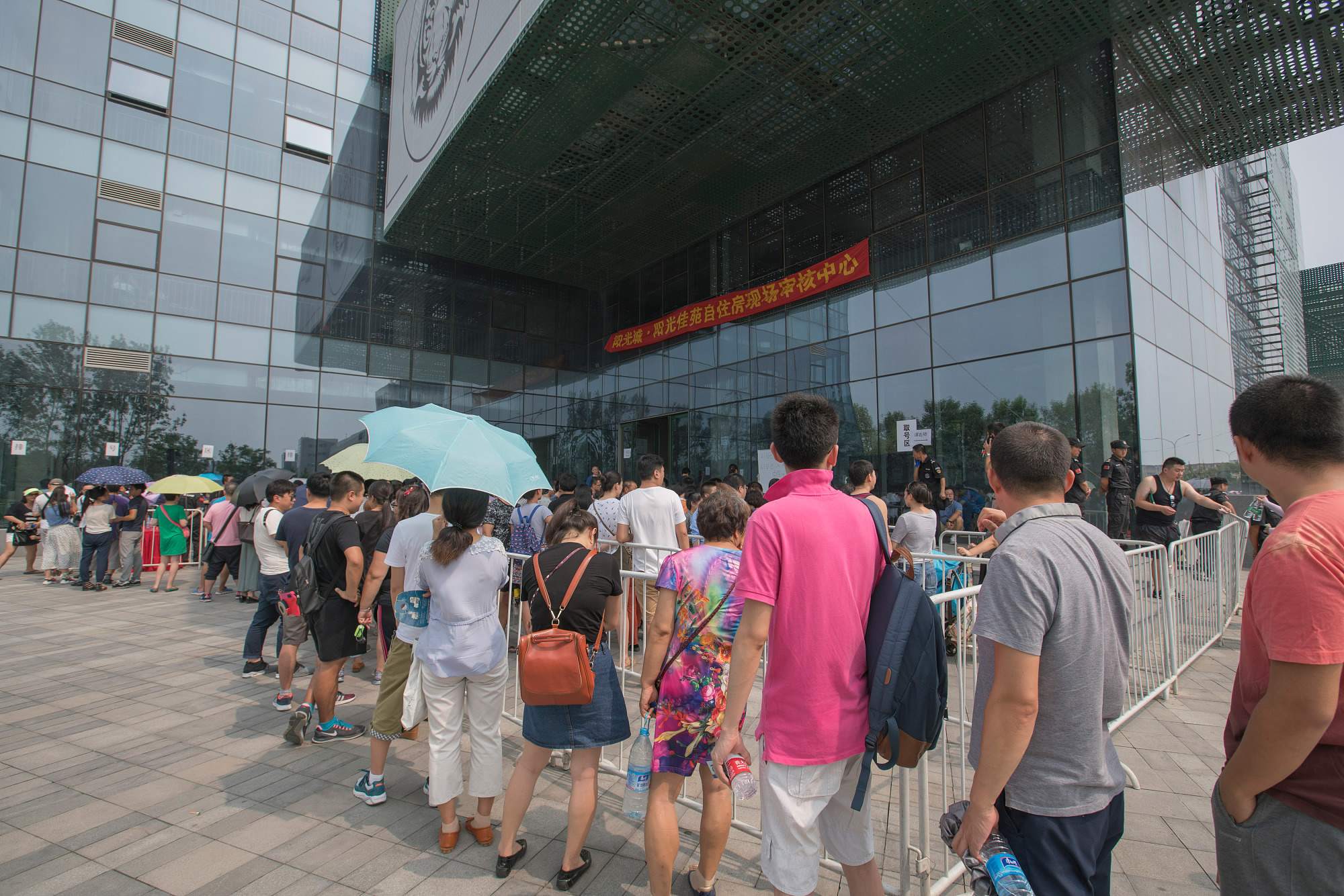Beijing's housing authority has launched a pilot policy to allocate a certain percentage of indemnificatory apartments to “New Beijingers”, in order to ease housing pressures.
“New Beijinger” is defined as a person who does not have local hukou (household registration), but has paid income tax or social insurance for five years in Beijing.

CFP Photo
The policy is designed to increase the group's sense of belonging while staying Beijing, according to the housing authority.
The pilot policy, announced on Thursday night, is going to be implemented in two types of the government’s indemnificatory apartments: public rental housing and affordable housing.
Two public housing projects in Chaoyang and Daxing districts which are owned by Beijing Housing Security and Housing Authority will allocate about 30 percent, in total 120 of apartments, to New Beijinger households for renting. Those who live in these two districts will have priority.
In addition, about 30 percent of apartments in a public housing construction program in Changping district -- 780 units in total -- will be sold only to New Beijingers as self-occupied affordable housing.

CFP Photo
Beijing allocated more land to construct indemnificatory housing in 2016, with a 13.6 percent increase from previous year.
Starting from 2013, Beijing Municipal Commission of Housing and Urban-Rural Development announced plans to build 20,000 self-occupied affordable housing units, to be sold to low-income families at a price 30 percent lower than the average price of nearby apartments. However, the apartments can't be placed on the sales market for five years after purchase, as part of the city’s indemnificatory housing plan.
Since then, 56,000 low-income households in Beijing have successfully purchased self-occupied affordable housing with the average price 18,000 yuan (2,600 US dollars) per square meter.
The “New Beijinger”, along with those who have hukou but also a low income, is eligible to apply for self-occupied affordable housing. However, due to the long waiting list, Beijing has to depend on a lottery system to decide who is allocated the housing.

People line up to apply for affordable housing in Tongzhou, Beijing. /CFP Photo
The lottery system works in three steps. The first two rounds are for those who are in the low-income bracket but have a local hukou. The “New Beijinger” family is categorized in the third round. The chance for them to be allocated the housing is much lower than others.
Beijing Municipal Commission of Housing and Urban-Rural Development aims to expand the pilot policy as a long-term benefit for the “New Beijinger."
The latest data shows that in public rental housing, there are 10,300 families, about 13 percent of "New Beijinger" households. Among those who have successfully bought affordable housing, only 3,000 households, about five percent, are New Beijingers, according to Beijing Morning News.









